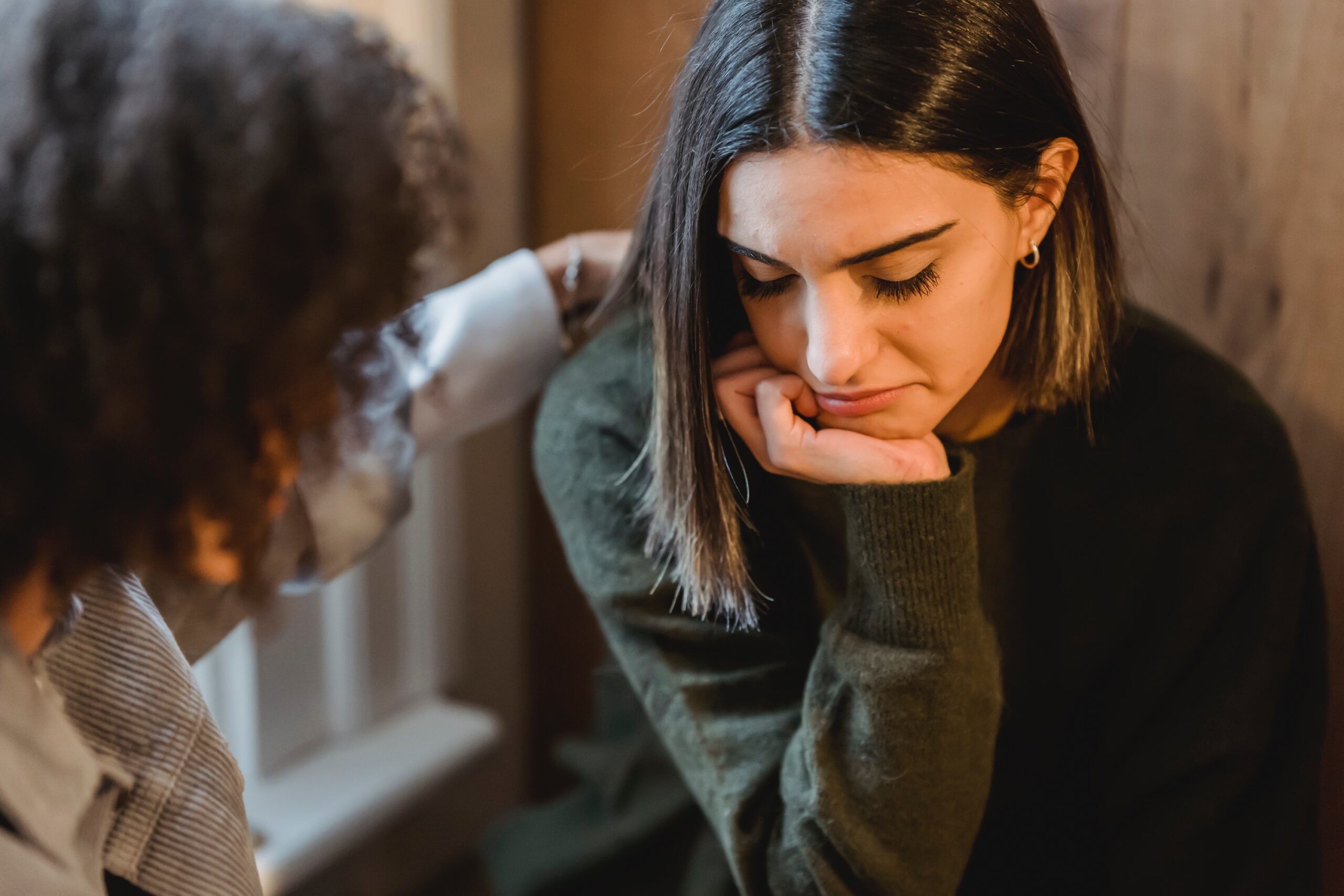
No, You’re Not Crazy: The Need For Shared Experiences In Grief
The death of one of my children was something I never thought I’d experience in my lifetime. I don’t think any parent does.
In the aftermath of my daughter’s death, I was overwhelmed with constantly changing emotions and a landslide of unnerving thoughts. But one of the hardest things I experienced was my extreme sense of isolation.
Losing a child is different than any other type of loss. I had no point of reference for what to expect. After all, the death of a child is seldom talked about. It is too painful for most people to even imagine.
So, it felt as if I was left to experience all these horrible emotions and thoughts on my own. And many times, I didn’t know how to handle it.
Being bombarded with all of these unfamiliar thoughts and emotions, it often felt as if I was going crazy from grief.
Without knowing if other people had gone through the same intensely painful experiences and irrational thoughts, early grief made me feel like I was losing my sense of reality. I often couldn’t understand what was happening or why I felt and thought the way I did. I’ve come to understand that many bereaved parents feel this way.
It’s only when we hear from other people who’ve had similar experiences that we find a sense of hope that it won’t always feel this way. And then we can slowly learn to adapt to a new, different state of “normal”.
But sharing our grief experiences is not so easy.
In the United States (and other countries), our society is uncomfortable with grief caused by death. Most condolences try to alleviate our pain. They assure us that our loved one is in a better place, which implies we should feel happy for them. Extended, outward displays of sadness are often frowned upon due to the discomfort it causes those around us.
Soon after the funeral is over, we are expected to get back on track with our lives as if nothing major has changed. For example, many employers offer 2-5 bereavement days for the death of an immediate family member. Often, they “pay” for these days by taking them out of our sick or vacation days. After that, it’s back to business as usual.
But after suffering a profound loss there is no such thing as “business as usual”.
Because outward grief is unwelcome, it often becomes a very isolating experience — which only compounds the distress we feel. Yet, with billions of people on this planet, the chance of someone else experiencing the same or similar emotions and thoughts caused by grief are very high.
Why are shared grief experiences important?
They’re not necessarily important to every grieving person. But for many, when we’re able to hear from people who’ve experienced a similar loss, we can start acknowledging and understanding our grief. Our sense of isolation begins to wane.
After all, grief is our innate healing process when we are faced with loss. So it would be expected that people’s built-in healing process would operate in similar ways.
Yet, since death and the resulting grief is a somewhat taboo topic, most of us have never been taught what those common reactions are.
There is the exception of the widely known 5 Stages of Grief, but that was originally intended to describe the common reactions of a terminally ill person when faced with their own impending death. As such, the “stages” often don’t match what we feel after the loss of a loved one — particularly a child.
Shared grief experiences help us know that the unfamiliar things we are thinking and feeling aren’t “crazy”.
Do you know the feeling that your child will walk through the door any moment or be on the other end of the phone when you answer it? That’s a normal grief reaction. Even months after their death.
What about being angry at God because you can’t understand how there could be any reason to take a child’s life? That’s normal too.
Does the sound of laughter make you nauseous and feel like screaming at everyone to shut up because the idea of being happy now feels like a betrayal of your child’s memory? Again, completely normal.
After you’ve been crying for what feels like days, do you ever suddenly switch to feeling apathetic and numb? Or abruptly rage out of control for no apparent reason? Normal.
The list of normal grief reactions that otherwise seem completely out of control and irrational is extremely long.
Too long to list here, anyway. But all of them have been felt by many people across cultures and around the world.
Over the years, I’ve written a lot about my experience with grief after the death of my daughter. One of the most common responses I receive is that by having someone else validate those feelings, it helps make them feel like they’re not crazy after all.
So the next time grief is making you feel “crazy”, just remember that countless other people have experienced the same thing. You can usually find them in support groups, whether online or in person. And chances are, they can and will help you through your grief if you just reach out to them for support.



 This website was inspired by the memory of Margareta Sol Kubitz in hopes of helping others work through the pain of grief.
This website was inspired by the memory of Margareta Sol Kubitz in hopes of helping others work through the pain of grief.